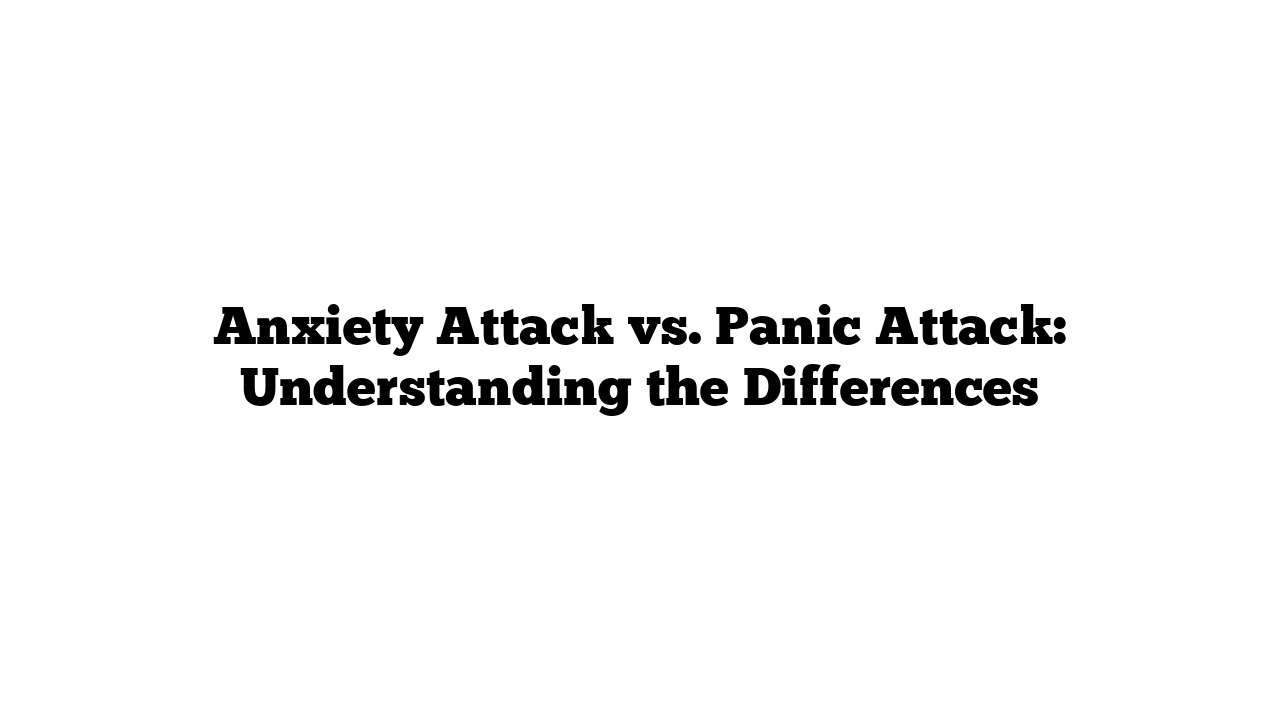The Confusion Around Terminology
There’s a lot of misinformation circulating about anxiety attacks and panic attacks, especially on social media. As a clinical psychologist, I want to clarify the differences and provide you with effective strategies for managing panic attacks.
What is an Anxiety Attack?
Anxiety attack is a term frequently used online, but it lacks a clinical definition. This means it’s not officially recognized by mental health professionals, leading to varied interpretations. Many people use it to describe a general buildup of anxiety, often before events like exams or interviews. However, it’s crucial to note that there’s no standardized criteria for what constitutes an anxiety attack.
A common misconception is that anxiety attacks always have a clear trigger, while panic attacks do not. This is simply not true. Both anxiety and panic can arise from identifiable triggers or from internal sensations that feel threatening.
What is a Panic Attack?
A panic attack is characterized by a sudden surge of intense fear or discomfort that peaks within minutes. During a panic attack, individuals may experience a range of symptoms, typically including at least four from the following list:
- Palpitations or pounding heart
- Sweating
- Trembling or shaking
- Shortness of breath or feelings of choking
- Chest pain or discomfort
- Nausea or abdominal distress
- Dizziness, lightheadedness, or feeling faint
- Derealization (feelings of unreality) or depersonalization (feeling detached from oneself)
- Fear of losing control or “going crazy”
- Fear of dying
- Numbness or tingling sensations
- Hot flashes or chills
Panic attacks can occur without a history of anxiety, and experiencing one does not automatically mean you have a panic disorder. They can be linked to various situations, including trauma responses or specific phobias.
How Anxiety Can Spiral Into a Panic Attack
Understanding how anxiety can escalate into a panic attack is key. A panic attack can be triggered by external factors (like being in a crowded place) or internal sensations (like a racing heart after drinking coffee).
- Physical Sensations: You might notice symptoms such as a pounding heart and immediately think, “Oh no, I’m getting anxious!” This thought can cause heightened anxiety.
- Hyper-Vigilance: When you become overly aware of your anxiety symptoms, you start to notice them more, which can lead to increased anxiety.
- Catastrophic Misinterpretation: If you misinterpret these symptoms as catastrophic (like thinking you’re having a heart attack), you may trigger a panic attack.
What to Do During a Panic Attack
If you find yourself experiencing a panic attack, here are some strategies to help you regain control:
- Recognize Your Body’s Response: Remember that your body is functioning normally during a panic attack. Acknowledge that the sensations you’re experiencing are part of the anxiety response. This awareness can help you identify future episodes as anxiety rather than panic.
- Breathing Techniques: Use breathing exercises to calm your mind. Try the 7-11 technique: breathe in for a count of 7 and out for a count of 11. Focus on extending your out-breath for a few minutes. This can signal your body to slow down.
- Avoidance: Don’t let fear prevent you from facing situations that may trigger panic. If you had a panic attack in a specific location (like the supermarket), it might feel natural to avoid returning. However, this can feed anxiety over time. Instead, approach the situation gradually and seek support if needed.
Moving Forward
Understanding the differences between anxiety attacks and panic attacks is crucial for managing your mental health. If you experience recurrent panic attacks, consider speaking with a doctor or psychologist for further evaluation and support.
For more insights into anxiety and effective coping strategies, check out my book, which includes therapeutic tools to help you manage anxiety effectively.
I’d love to hear your experiences with anxiety and what techniques work best for you.
